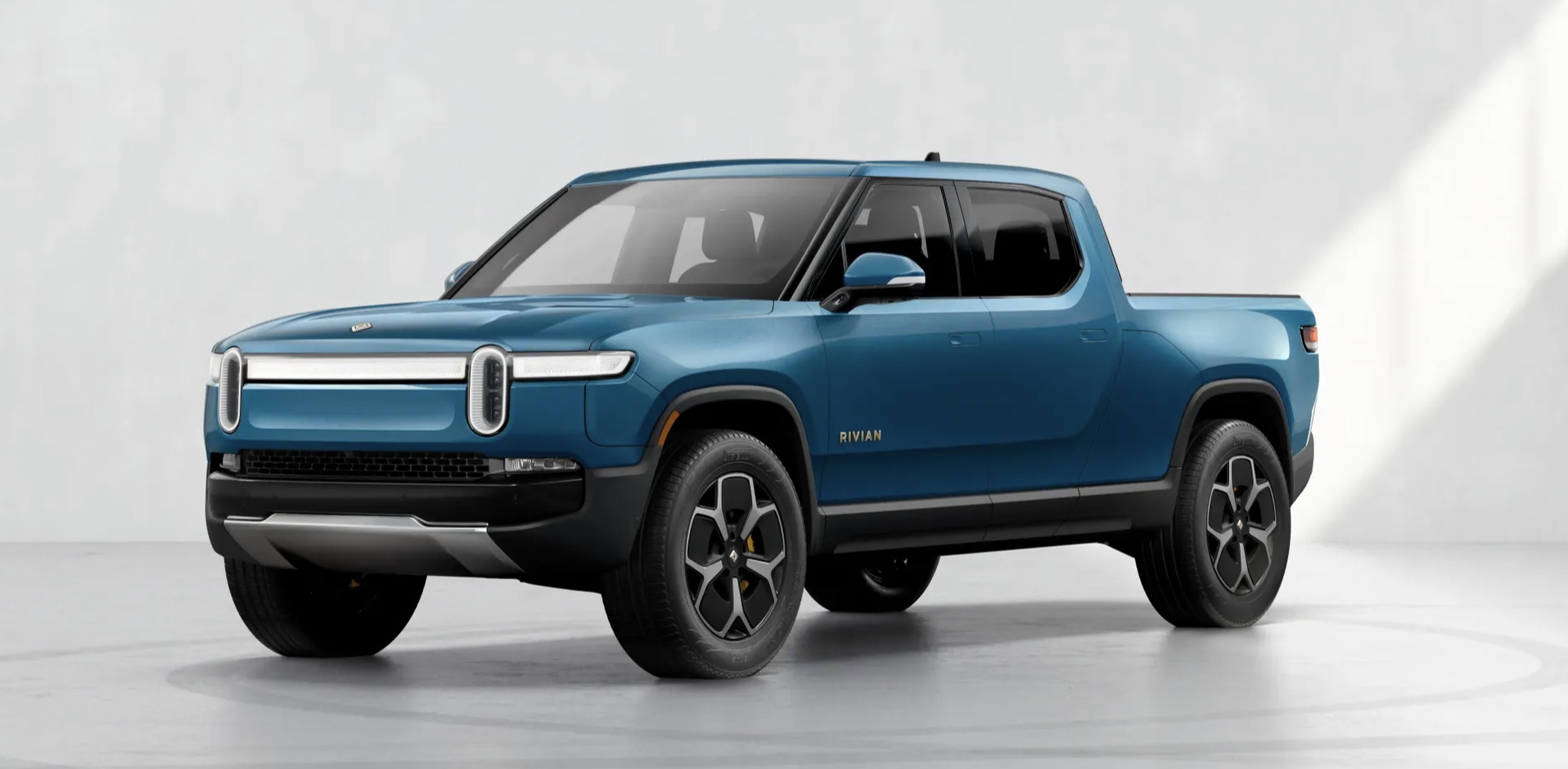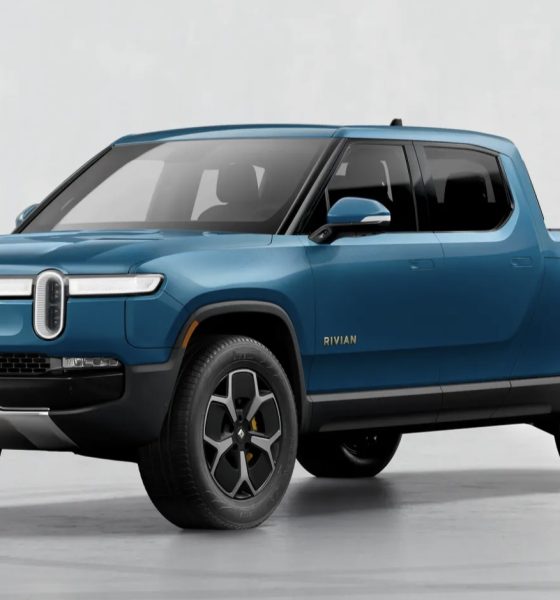Rivian has posted five new job opportunities in Europe, four in the Netherlands, and one in Germany, hinting toward an expansion of its electric vehicle business to a new continent as the first deliveries of its R1T pickup are set to begin next month.
In the Netherlands, Rivian has posted four new employment opportunities: three in Service and one in Delivery and Field Operations. All four positions are located in North Holland, Amsterdam. The service positions are related to Collision Repair and Field Service Planning and Compliance. The Delivery and Field Operations position is for an Enterprise Launch Program Manager who will “partner with multiple internal and external stakeholders to support the build-out of a seamless deployment strategy across a diverse product line of commercial vehicles across Europe.”
Rivian Automotive’s Normal, IL factory. (Photo: Rivian)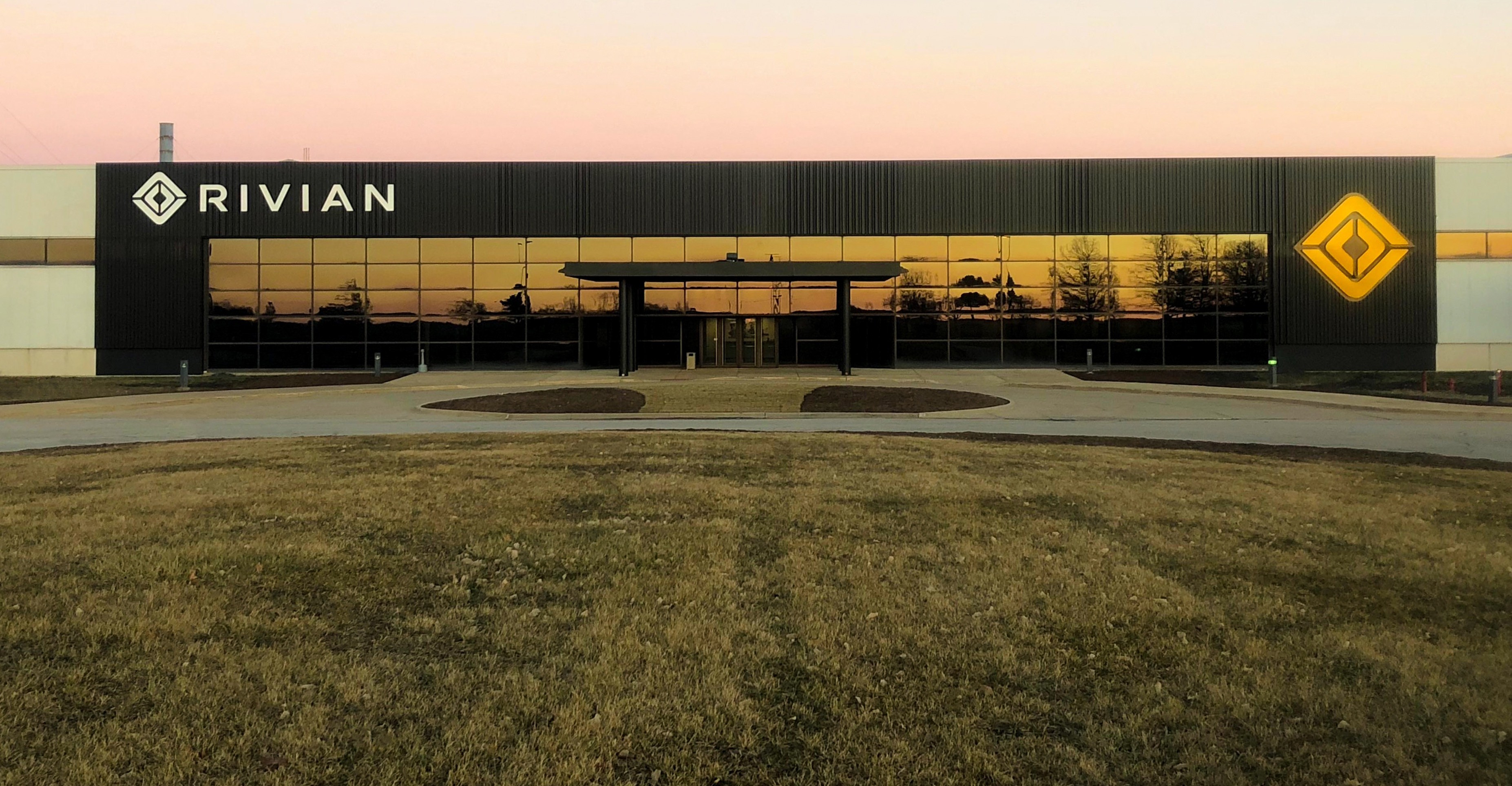
Meanwhile, the position in Germany is a Technician for the Launch Team and will help with pre-production vehicle builds, support new Service Centers in the region, improve functional efficiency in service procedures, and help build a well-running team that will handle servicing needs when the company launches its cars in the European market.
While Rivian is gearing up for its first deliveries ever next month, the company is already working to expand its production footprint and launch manufacturing in Europe. It was rumored that Rivian, while looking for its second U.S.-located assembly plant, was scoping out additional land in the United Kingdom for a European factory.
A report from Reuters in late July indicated that Rivian was ready to spend well over £1 billion ($1.39 billion) on its first European production plant, which could end up in the same prospective property that was being looked at by Tesla for Gigafactory UK. Rivian has declined to comment any specifics regarding its search for land for a new production facility in either the U.S. or the U.K., but Fort Worth has been vying for the electric car maker to build one of its facilities in Texas.
Additionally, British government agencies, including the Department for Business, Energy, and Industrial Strategy, did not comment, citing “individual investments” as the reason.
It seems uncertain if Rivian will bring the R1T and R1S to the European market. Rivian is eying smaller vehicle desings for European and Chinese consumers, according to CEO RJ Scaringe. “To really scale in those markets as we bring on follow-on products, having a production footprint outside the U.S. is going to be important. We wouldn’t be serious about building a car company if we weren’t thinking about China and Europe as important markets long term,” Scaringe said.
Don’t hesitate to contact us with tips! Email us at tips@teslarati.com, or you can email me directly at joey@teslarati.com.

News
Tesla is making two big upgrades to the Model 3, coding shows
According to coding found in the European and Chinese configurators, Tesla is planning to make two big upgrades: Black Headliner offerings and a new 16-inch QHD display, similar to that on the Model Y Performance.
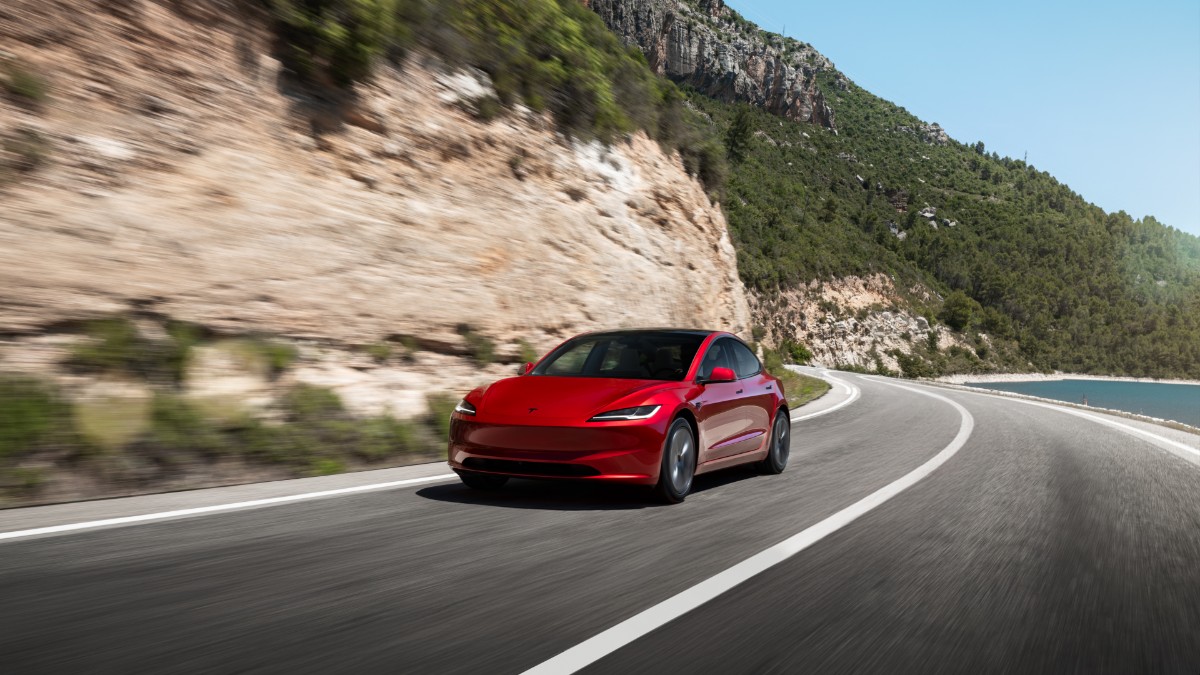
Tesla is making two big upgrades to the Model 3, one of which is widely requested by owners and fans, and another that it has already started to make on some trim levels of other models within the lineup.
The changes appear to be taking effect in the European and Chinese markets, but these are expected to come to the United States based on what Tesla has done with the Model Y.
According to coding found in the European and Chinese configurators, Tesla is planning to make two big upgrades: Black Headliner offerings and a new 16-inch QHD display, similar to that on the Model Y Performance.
These changes in the coding were spotted by X user BERKANT, who shared the findings on the social media platform this morning:
🚨 Model 3 changes spotted in Tesla backend
• New interior code: IN3PB (Interior 3 Premium Black)
• Linked to Alcantara-style black headliner
• Mapped to 2026 Model 3 Performance and Premium VINs• EPC now shows: “Display_16_QHD”
• Multiple 2026 builds marked with… pic.twitter.com/OkDM5EdbTu— BERKANT (@Tesla_NL_TR) February 23, 2026
It appears these new upgrades will roll out with the Model 3 Performance and Tesla’s Premium trim levels of the all-electric sedan.
The changes are welcome. Tesla fans have been requesting that its Model 3 and Model Y offerings receive a black headliner, as even with the black interior options, the headliner is grey.
Tesla recently upgraded Model Y vehicles to this black headliner option, even in the United States, so it seems as if the Model 3 will get the same treatment as it appears to be getting in the Eastern hemisphere.
Tesla has been basically accentuating the Model 3 and Model Y with small upgrades that owners have been wanting, and it has been a focal point of the company’s future plans as it phases out other vehicles like the Model S and Model X.
Additionally, Tesla offered an excellent 0.99% APR last week on the Model 3, hoping to push more units out the door to support a strong Q1 delivery figure at the beginning of April.
Elon Musk
SpaceX secures FAA approval for 44 annual Starship launches in Florida
The FAA’s environmental review covers up to 44 launches annually, along with 44 Super Heavy booster landings and 44 upper-stage landings.
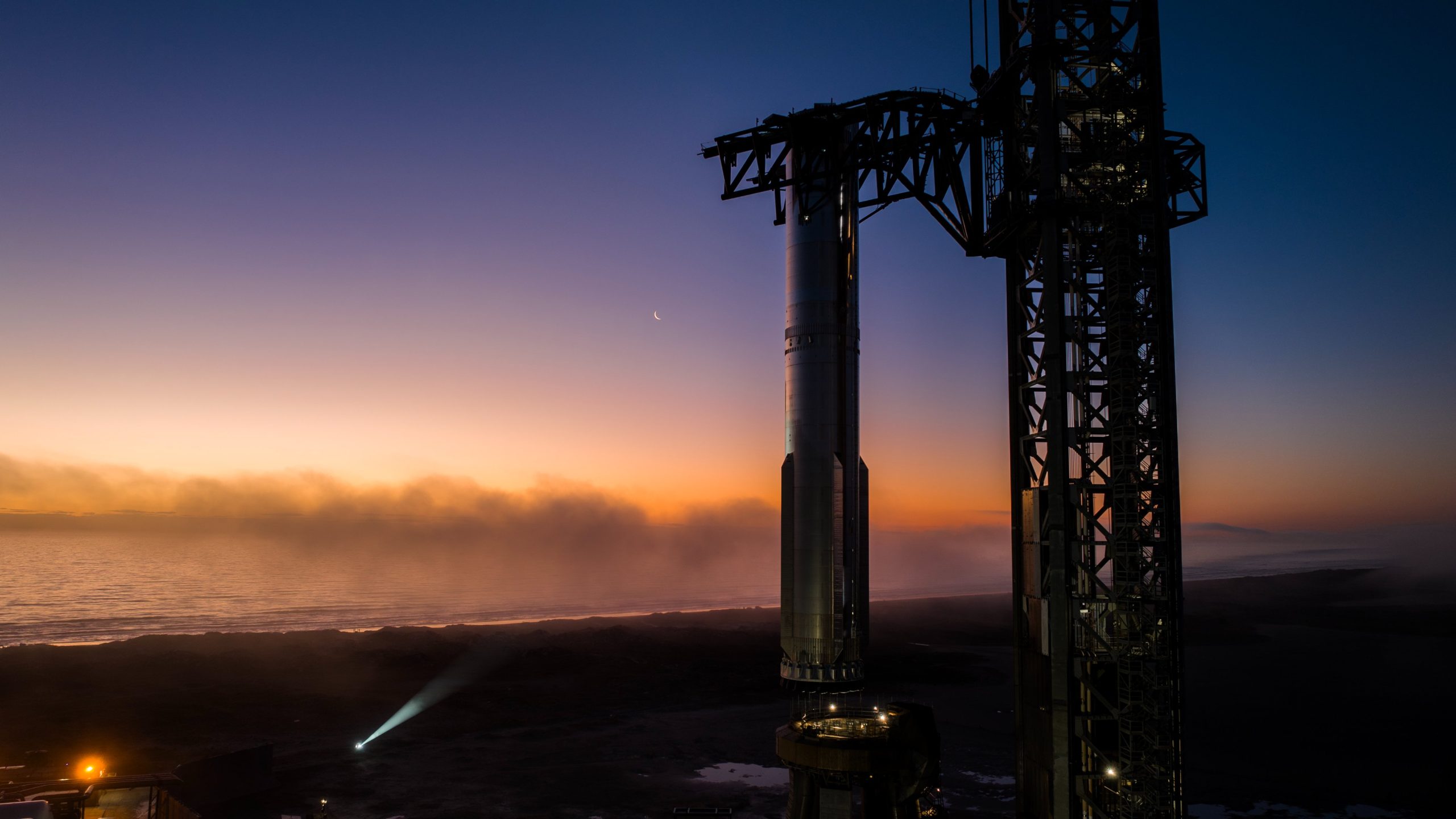
SpaceX has received environmental approval from the Federal Aviation Administration (FAA) to conduct up to 44 Starship-Super Heavy launches per year from Kennedy Space Center Launch Complex 39A in Florida.
The decision allows the company to proceed with plans tied to its next-generation launch system and future satellite deployments.
The FAA’s environmental review covers up to 44 launches annually, along with 44 Super Heavy booster landings and 44 upper-stage landings. The approval concludes the agency’s public comment period and outlines required mitigation measures related to noise, emissions, wildlife, and airspace management.
Construction of Starship infrastructure at Launch Complex 39A is nearing completion. The site, previously used for Apollo and space shuttle missions, is transitioning to support Starship operations, as noted in a Florida Today report.
If fully deployed across Kennedy Space Center and nearby Cape Canaveral Space Force Station, Starship activity on the Space Coast could exceed 120 launches annually, excluding tests. Separately, the U.S. Air Force has authorized repurposing Space Launch Complex 37 for potential additional Starship activity, pending further FAA airspace analysis.
The approval supports SpaceX’s long-term strategy, which includes deploying a large constellation of satellites intended to power space-based artificial intelligence data infrastructure. The company has previously indicated that expanded Starship capacity will be central to that effort.
The FAA review identified likely impacts from increased noise, nitrogen oxide emissions, and temporary airspace closures. Commercial flights may experience periodic delays during launch windows. The agency, however, determined these effects would be intermittent and manageable through scheduling, public notification, and worker safety protocols.
Wildlife protections are required under the approval, Florida Today noted. These include lighting controls to protect sea turtles, seasonal monitoring of scrub jays and beach mice, and restrictions on offshore landings to avoid coral reefs and right whale critical habitat. Recovery vessels must also carry trained observers to prevent collisions with protected marine species.
Elon Musk
Texas township wants The Boring Company to build it a Loop system
The township’s board unanimously approved an application to The Boring Company’s “Tunnel Vision Challenge.”
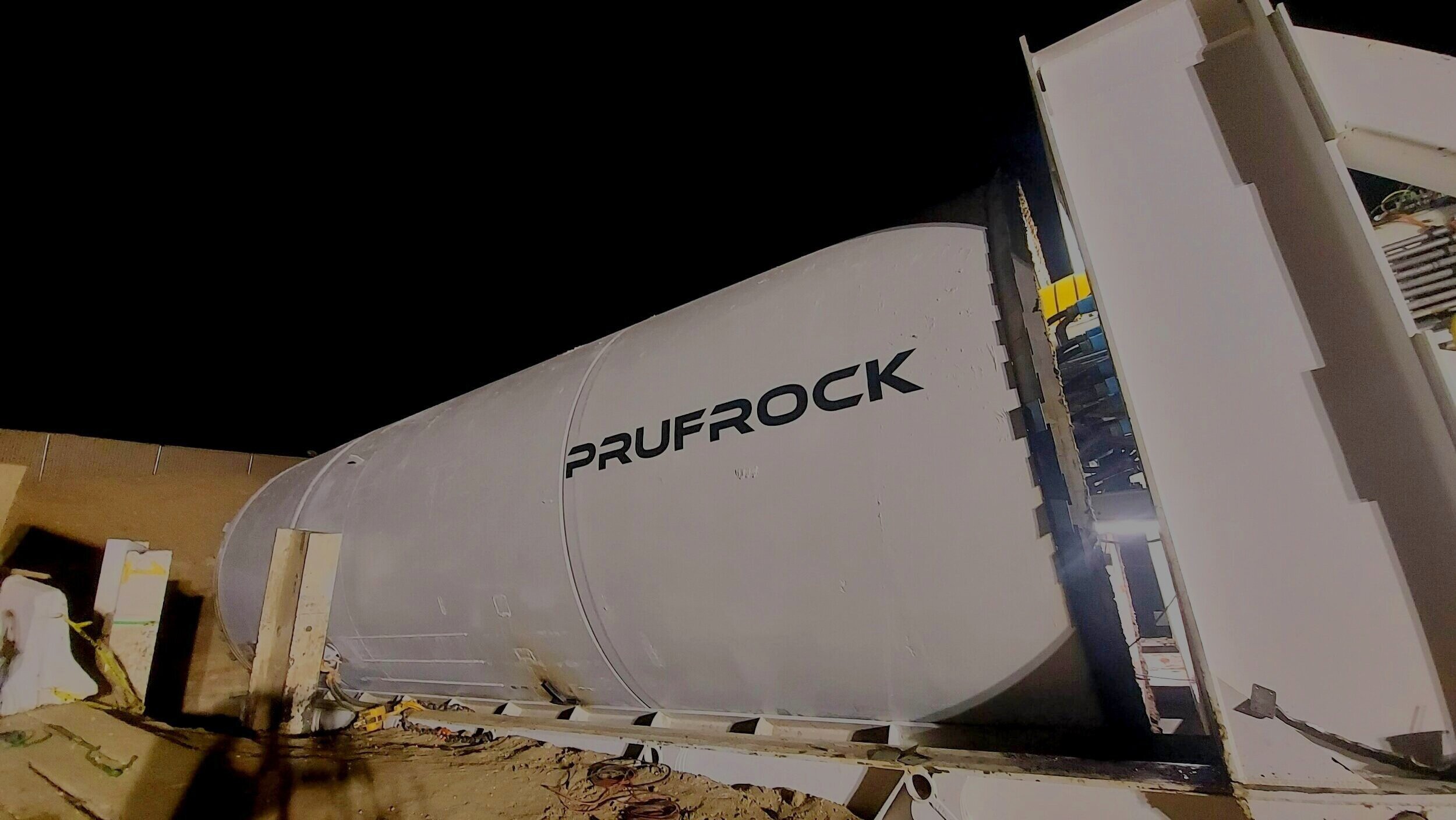
The Woodlands Township, Texas, has formally entered The Boring Company’s tunneling sweepstakes.
The township’s board unanimously approved an application to The Boring Company’s “Tunnel Vision Challenge,” which offers up to one mile of tunnel construction at no cost to a selected community.
The Woodlands’ proposal, dubbed “The Current,” features two parallel 12-foot-diameter tunnels beneath the Town Center corridor near The Waterway. Teslas would shuttle passengers between Waterway Square, Cynthia Woods Mitchell Pavilion, Town Green Park and nearby hotels during concerts and large-scale events, as noted in a Chron report.
Township officials framed the tunnel as a solution for the township’s traffic congestion issues. The Pavilion alone hosts more than 60 shows each year and can accommodate crowds of up to 16,500, often straining Lake Robbins Drive and surrounding intersections.
“We know we have traffic impacts and pedestrian movement challenges, especially in the Town Center area,” Chris Nunes, chief operating officer of The Woodlands Township, stated during the meeting.
“The Current” mirrors the Loop system operating beneath the Las Vegas Convention Center, where Tesla vehicles transport passengers through underground tunnels between venues and resorts.
The Boring Company issued its request for proposals (RFP) in mid-January, inviting cities and districts to pitch local uses for its tunneling technology. The Woodlands must submit its application by Feb. 23, though no timeline has been provided for when a winning community will be announced.
Nunes confirmed that the board has authorized a submission for “The Current’s” proposal, though he emphasized that the project is still in its preliminary stages.
“The Woodlands Township Board of Directors has authorized staff to submit an application to The Boring Company, which has issued an RFP for communities interested in leveraging their technology to address community challenges,” he said in a statement.
“The Board believes that an underground tunnel would provide a safe and efficient means to transport people to and from various high-use community amenities in our Town Center.”
